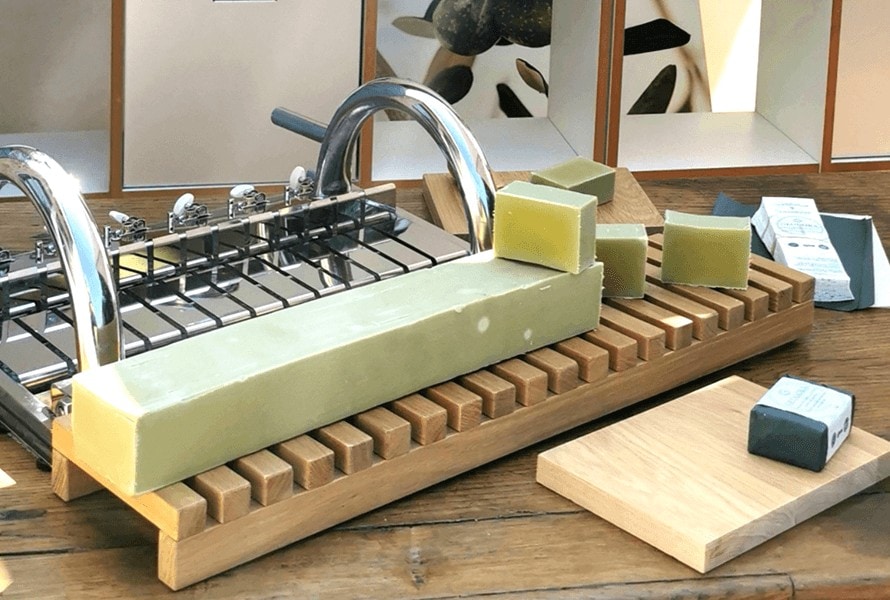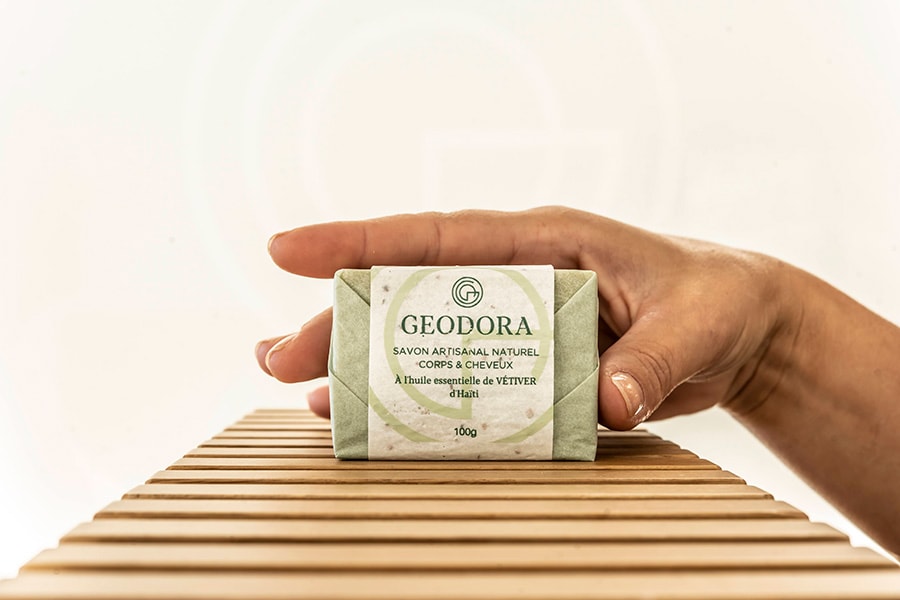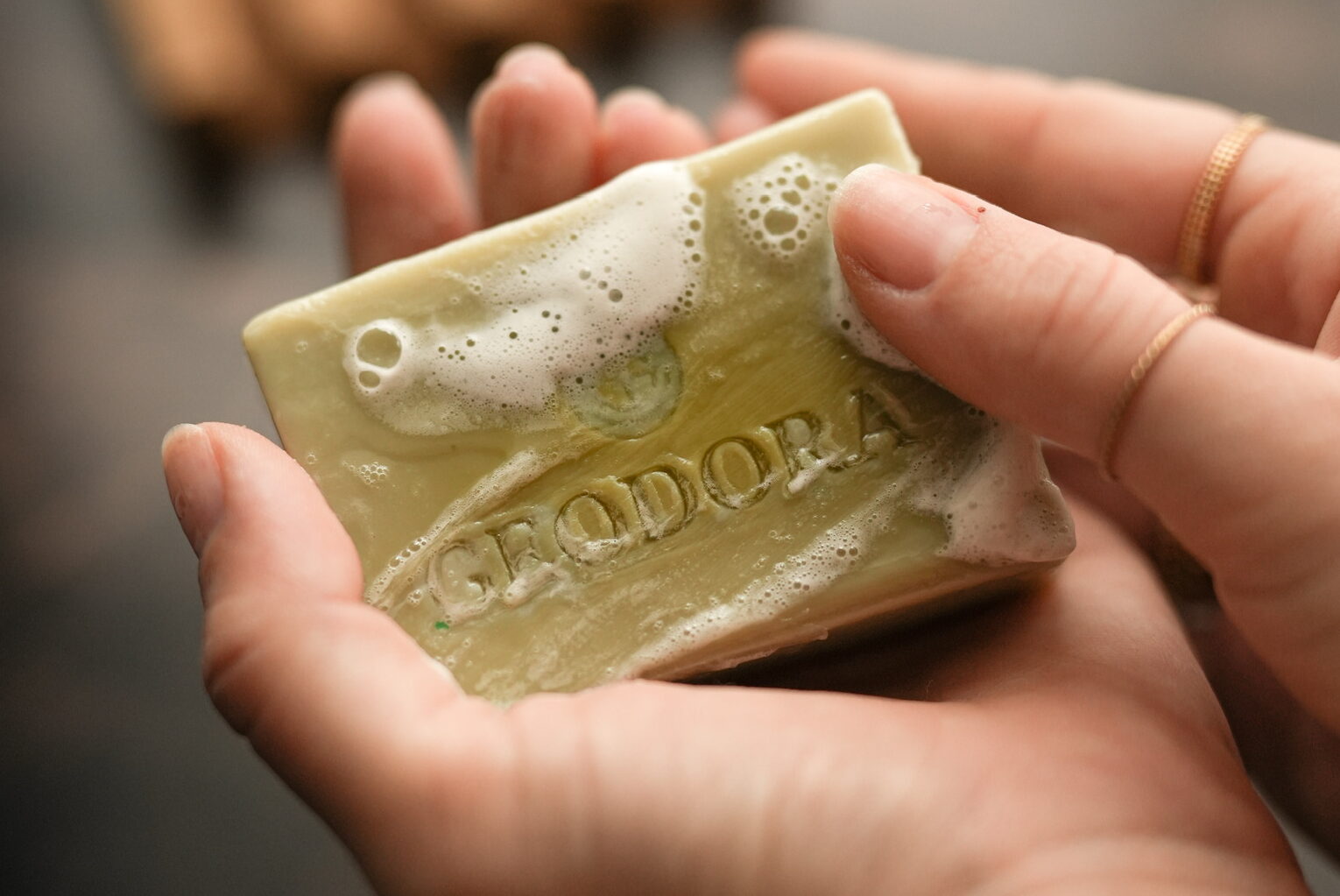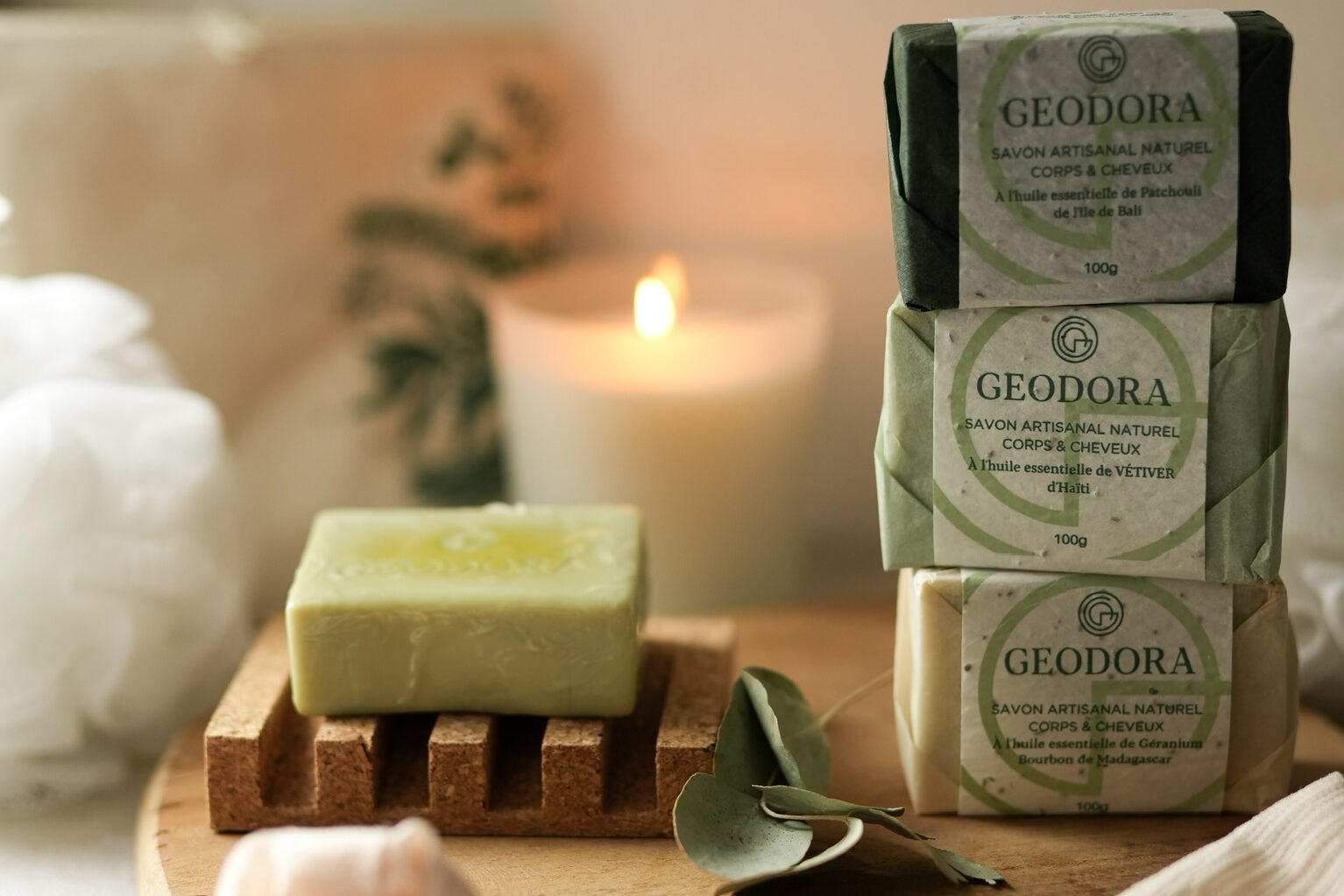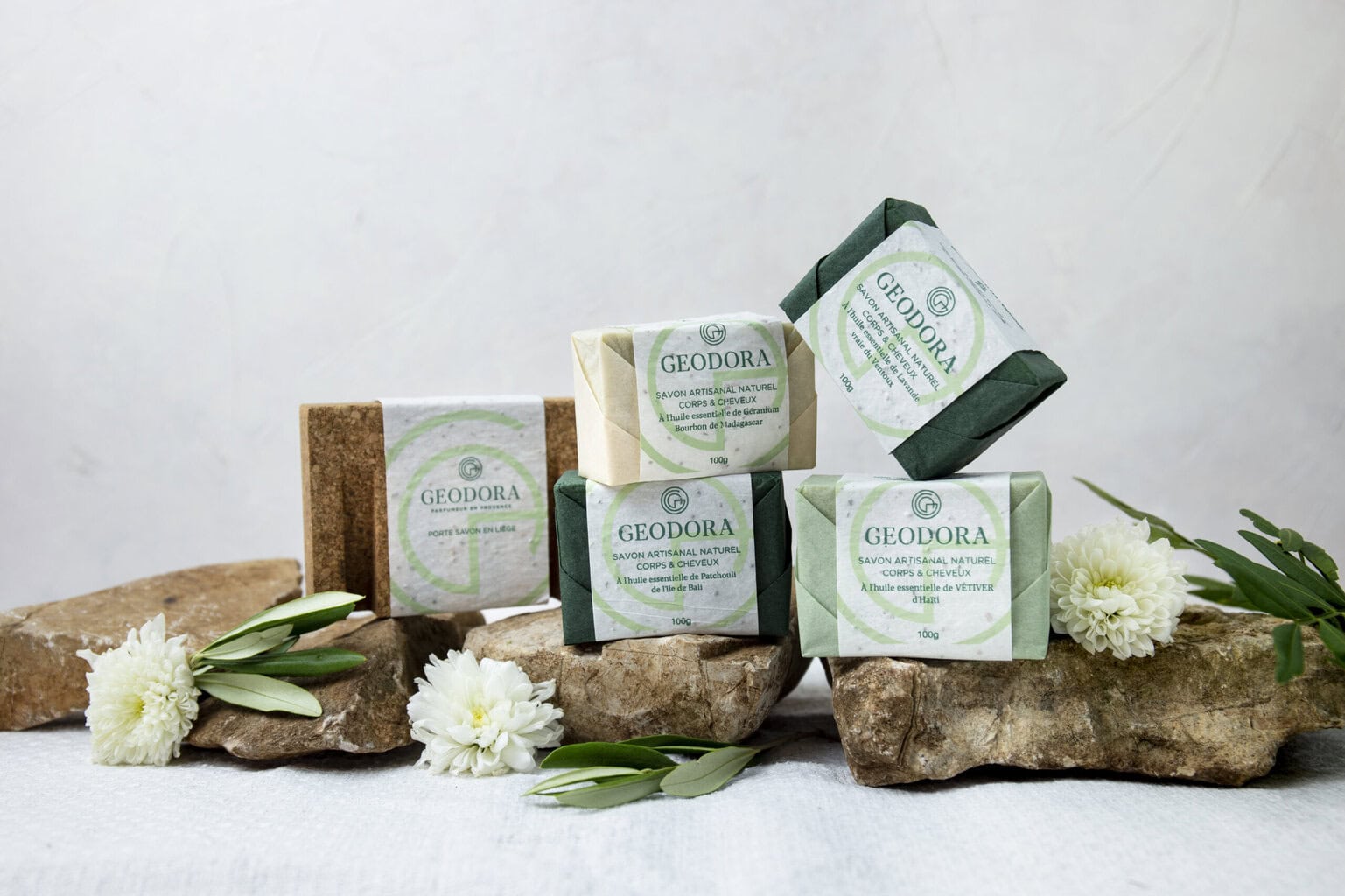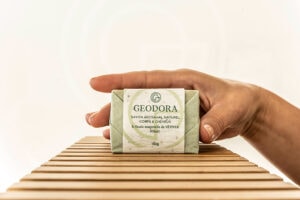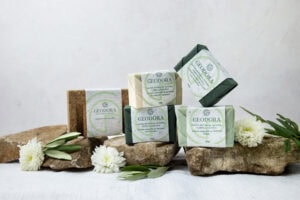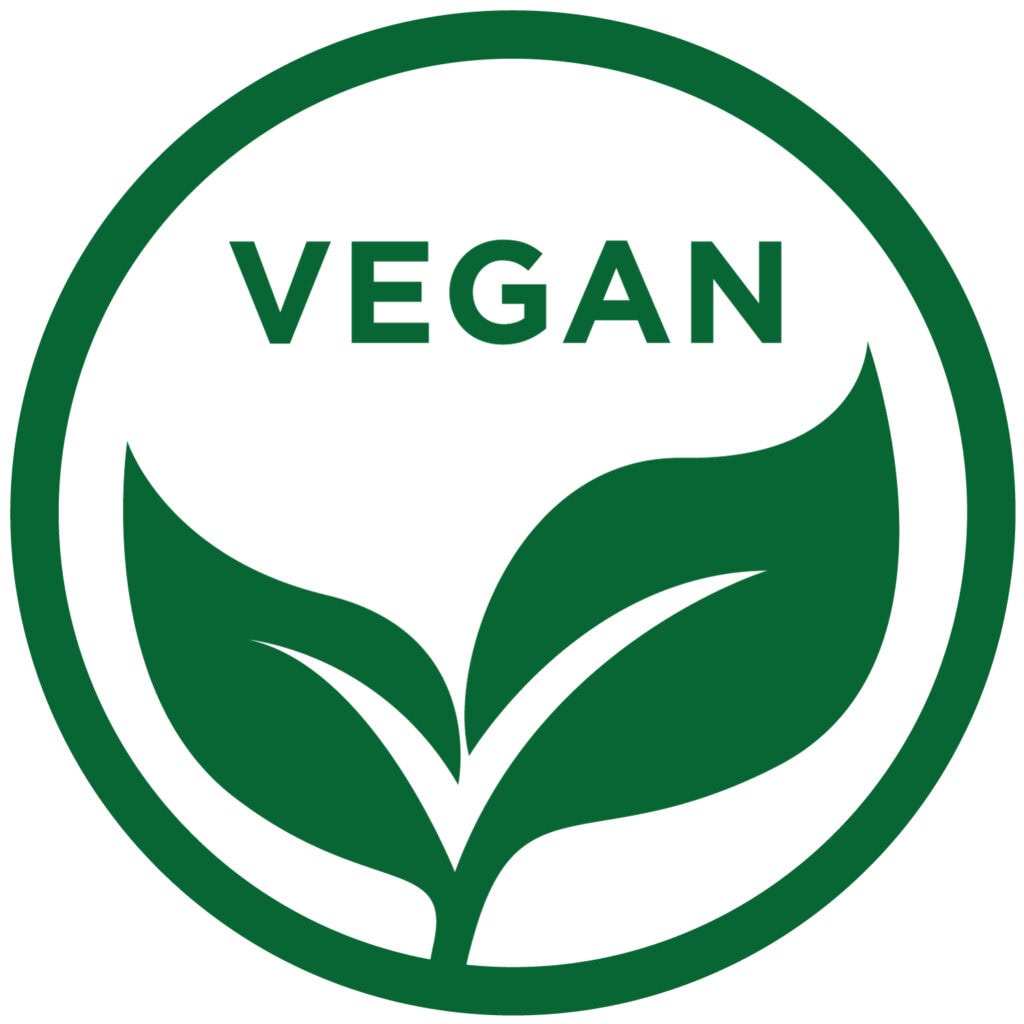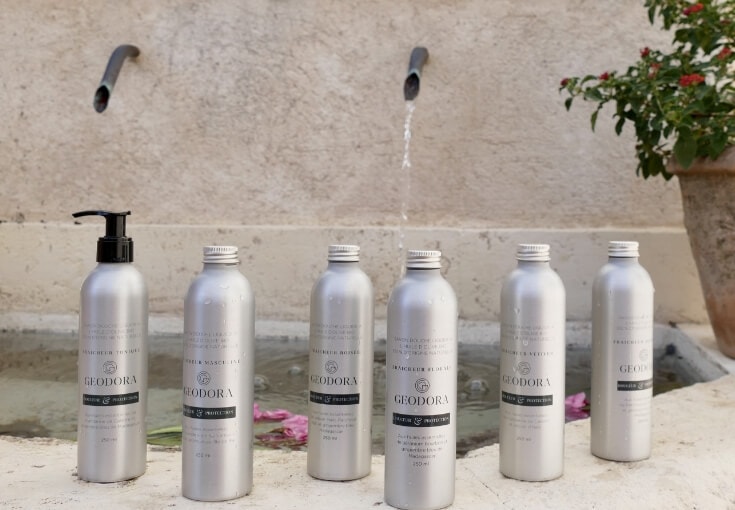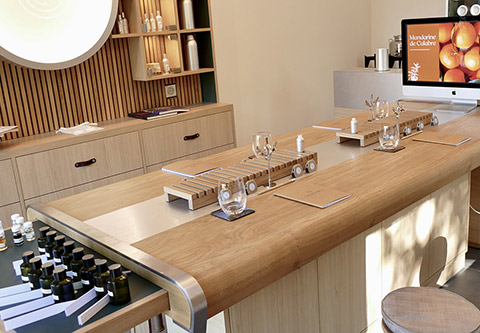Solid soap with Haitian Vetiver
Solid soap with Haitian Vetiver
10 mL bottle 10,00 €
The Haitian vetiver used in this olive oil soap is one of the most precious varieties produced on this Caribbean island. This vetiver carries a woody and herbaceous freshness, which leaves a delicate imprint on the skin. This essential oil promotes relaxation while stimulating the circulatory system.
Ingredients INCI : Sodium Olivate, Aqua, Glycerin, Olea Europaea Fruit Oil, Vetiveria zizanoides root oil.

Composition
Organic olive oil
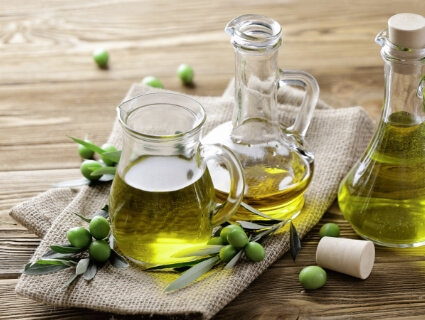
Soaps made with 100% single variety organic olive oil: Arbequina.
Essential oil of Vetiver
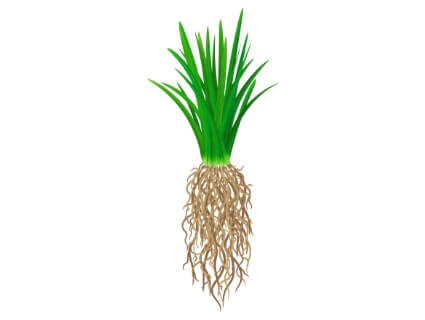
Essential oil of Haitian Vetiver
Being sustainable means nothing goes to waste, so plant the seeded paper labels around our soaps in a pot of soil and enjoy beautiful wild flowers a few weeks later.
COLD SAPONIFICATION
COLD SAPONIFICATION
To make a solid soap by cold saponification, we mix ourorganic mono-varietal olive oil with soda. Once the mixture starts to thicken, we pour it into beechwood molds. After a few days, we unmold and cut our soaps by hand.
This process, unlike hot saponified, requires a much longer reaction time because we do not influence the thermodynamic factor. At GEODORA we apply a drying time of at least 8 weeks before marketing them. Drying is also made necessary by the absence of coagulant in our 100% natural soaps, an ingredient generally used to maintain the structure of soaps.
The benefits of our soap recipes and cold saponification method are considerable.
- The production of glycerine
Cold saponification has the advantage of preserving the glycerin produced during the reaction. Olive oil is the raw material for making glycerin. It is organic and vegan. Glycerin has as main property to nourish the skin and to moisturize it, with our soaps, solid or liquid, your skin remains soft and supple. This is the reason why you can use our soaps as shampoo because the high level of glycerin will nourish your scalp.
- Our soaps contain 9% Surgras
Cold saponification is the only technique that allows us to add a surplus of vegetable oil that will not be saponified, which we call a surgras. We add 9% more organic olive oil in the process.
- Ethical and ecological
Cold saponification is a traditional method with a very high ecological balance because, while it requires a lot of time, it requires little use of power.
